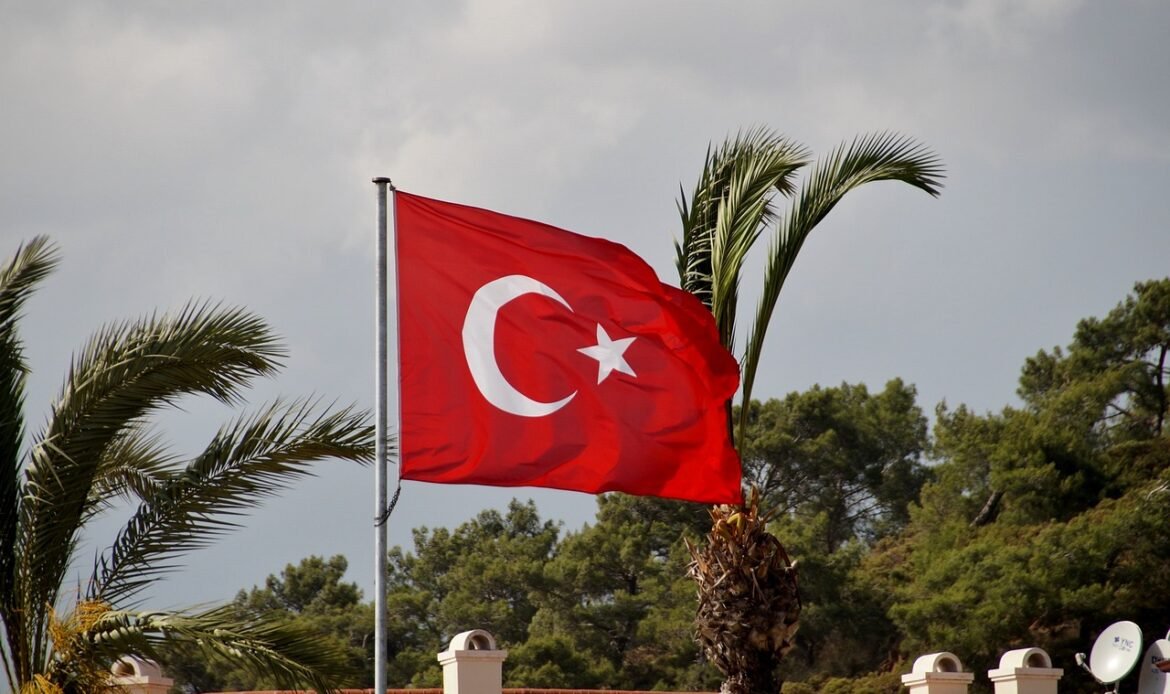The Turkish lira is already facing some of the most volatile conditions across global currency markets in the run-up to the country’s landmark elections this weekend, with traders predicting a likely collapse if incumbent Recep Tayyip Erdogan retains his presidency.
The lira is currently trading at record lows of 19.56 against the U.S dollar — and market watchers forecast that it still has further room to plunge.
Turkey is holding both its presidential and parliamentary elections on Sunday. In the event of a victory by Erdogan, it’s “highly likely the Turkish lira collapses within months,” the founder of advisory firm Cribstone Strategic Macro Mike Harris told CNBC.
“Ultimately the lack of confidence in investment will mean that the Turkish Lira will probably be among the worst performing currencies in the world for some time,” he said.
This is largely owed to the current president’s unorthodox economic policies.
“For a number of years under the guiding hand of Erdogan’s nutty monetary ideas, the Turkish lira has been wildly volatile and in a state of crisis,” said Steve H. Hanke, who is a professor of applied economics at The Johns Hopkins University.
The Central Bank of the Republic of Turkiye did not immediately respond to a CNBC request for comment.
Turkey’s monetary policy prioritizes the pursuit of growth and export competition rather than assuaging inflation. Erdogan endorses the unconventional view that raising interest rates increases inflation, rather than taming it.
The president’s refusal to raise rates played an instrumental role in the lira’s historic plummet that saw it go from less than 4 to the dollar in 2018 to 18 against the dollar in 2021.
“Concerns about the actual election uncertainty, and then the uncertainty over a potential change in government and how they might manage FX is what is behind the sharp rise in FX volatility to this 42.7% level,” said Paresh Upadhyaya, director of fixed income and currency strategy at Amundi US, who added that the lira’s volatility rate hovered around 10-12% in December.
“Should Erdogan win, which is our base case assumption, USD/TRY could move to 23.00,” Wells Fargo’s Emerging Markets Economist and FX Strategist Brendan McKenna wrote in an e-mail.
“The lira is heavily overvalued as a result of intervention efforts, and depending which way the election ends up going, the currency could move sharply in either direction,” McKenna said.
A ‘very sharp rally’ if the opposition wins?
Erdogan’s biggest contender lies in joint opposition candidate Kemal Kilicdaroglu, who pledged to reinstate orthodox economic policies and cool Turkey’s sky-high inflation rate.
And if the opposition emerges victorious, the lira will begin to see some strengthening, at least initially, said Upadhyaya.
“It will mean that the central bank of Turkey regains its independence, that they will be allowed full mandate to pursue traditional economic policies,” he said.
Higher interest rates would help lower the country’s inflation rate, lead to a “pretty serious recession” and help firm up the foreign currency reserves that have been depleted trying to defend the lira, he continued.
In a regime change scenario, the lira may still experience downside in the very near-term as FX intervention efforts halt, but longer-term could see a very sharp rally.
However, whatever sharp positive reaction will be short-lived, according to a report by Commerzbank dated May 9.
“The coalition is made up of smaller parties, which came together only to oust Erdogan,” wrote the bank’s Senior Emerging Markets Economist Tatha Ghose.
“The market’s enthusiasm could fade if the coalition were to run into cooperation or policy implementation challenges, which would remind markets that Erdogan can return to power,” the report elaborated.
In spite of that, Wells Fargo’s McKenna anticipates a more optimistic long-term outlook for the currency.
“In a regime change scenario, the lira may still experience downside in the very near-term as FX intervention efforts halt, but longer-term could see a very sharp rally.”
De-linked market
Turkey is currently grappling with an inflation rate of close to 50%, after breaching a 24-year high of 85.51% last October.
Whether the lira takes a freefall or regains some ground, the impact is still likely to be contained domestically.
“Turkey is now a mainly de-linked market with much smaller flows and no real international participation,” Ghose told CNBC in an e-mail. Similarly, Upadhyaya does not foresee any spillover impacts.
“I do not expect any contagion effects affecting other emerging market currencies or even G-10 currencies,” he said.
This article was originally published by CNBC.



